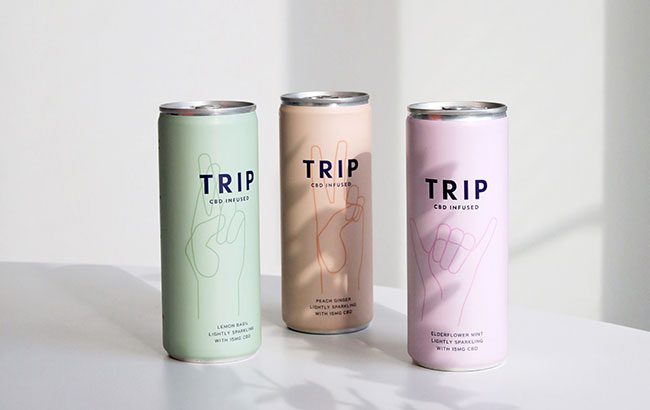Is cannabis legalisation a threat to spirits?
Major drinks companies are eyeing up the cannabis sector, but are holding out for legislation to be passed before truly committing to it.

It’s been nearly five years since Canada legalised the sale and consumption of marijuana. Since then 21 states in the US have allowed its recreational use, while Germany is also set to become the first European country to regulate the sale of cannabis products.
Despite these developments, drinks firms have held back on moves to launch cannabis-infused products, most likely because of the lack of regulations.
The Wine and Spirits Wholesalers of America (WSWA) recently became the first trade body to advocate for federal cannabis use in the US. The WSWA is calling on the US Congress to regulate cannabis using the alcohol regulatory system.
The trade body said the move would “promote industry competition, innovation and public safety”.
Francis Creighton, president and CEO of the WSWA, said: “We should be taking the positive experience we’ve had regulating wine and spirits over the last 90 years and apply that to this similar product, and raise the bar on that product so that it’s regulated more like beverage alcohol.”
Jake Hegeman, senior vice-president, legal and regulatory, general counsel, WSWA, noted the industry faces a “huge discrepancy”, as there is a “significant illicit market that operates more easily today than in the past because so much of the US has a legal market”. He also said the 21 states where it was legal “represent somewhere north of 50% of the US population”.
Cannabis rules differ in each state where it is allowed. Hegeman compared them with the alcohol system. “What those states all share in common is an underlying federal framework,” he said. “When we think about things like formulas for spirits, labels, federal excise tax collection for spirits, that led us to have a system that works nationwide, but still takes into account differing state systems. That’s where our vision for this goes, some of those principles from alcohol translate quite well to cannabis.”
Dawson Hobbs, executive vice-president, government affairs, WSWA, also explained common goals between the two industries, including preventing access to minors, making sure it’s not over consumed, and ensuring it is a safe product.
“I expect that there will be a number of states that don’t legalise maybe ever, but certainly for a long time,” Hobbs said. “Those states deserve to have the protection of the federal government against products crossing their borders as much as the states that do legalise deserve to have the protection of federal government and making sure that products are safe and well regulated.”
Hobbs has also seen a “very strong response” in conversations about cannabis among Congress. He added that while “they’re not quite ready to support legalisation, they are thinking about how it can happen”.
Jason Vegotsky, CEO of Petalfast, a sales and marketing agency for the cannabis industry, believes the three-tier system for alcohol is needed for cannabis. He said many alcohol firms are looking to enter the cannabis market. “Constellation Brands has taken a big leap, and has jumped in first,” he explained. “Then I think the challenges that Canopy Growth has had have tempered expectations and has made everybody a bit more reserved abut jumping headfirst into this but every single organisation in alcohol beverages is looking at cannabis and how they can participate. I don’t think it’s an if, I think it’s just a matter of when is the right time. And what is the risk from a federal perspective.”
He believes if alcohol rules were applied to cannabis, then more organisations would “jump into the space”.

Spiros Malandrakis, Euromonitor International’s head of research – alcoholic drinks, believes there is a “misconception that cannabis is not doing well” after cannabis firm Canopy Growth hit the headlines recently for its restructuring and value write-down. He said drinks companies have “taken a step back and are continuing to do research and development”.
The major firms “would never actively enter the US until federal legalisation happens”, he said, noting that rules in different states could mean they would have to set up production facilities in every state to sell their products.
Malandrakis believes cannabis could disrupt the alcohol sector. According to data from Euromonitor International, cannabis drinks account for a low single-digit share of cannabis sales in the markets where they are available.
In 2022, respondents to Euromonitor’s Voice of the Consumer Cannabis Survey in legal US states were much more likely to substitute alcohol with cannabis when compared with illicit markets (34% of the total population in US legal states versus 14% in Spain and Italy, and 18% in the UK and Mexico). Malandrakis said this figure highlighted the importance of accessibility, and, ultimately, normalisation.
Legalisation
Looking beyond North America, Malandrakis cited cannabis developments in Thailand, the Czech Republic, Malta and the Netherlands. In Germany, a draft law is to be published in April, and marijuana is expected to be made legal by the end of 2023. However, the country has scaled back its plans, presenting legislation that would allow cannabis possession of up to 25g and private cultivation, but not widespread commercial sales in shops.
Legalisation in Germany “might be the major domino in Europe that starts this conversation in Europe”, and means “it’s not going to be about the US and Canada anymore”, added Malandrakis. “CBD and other minor cannabinoids are already making inroads in Europe and in the UK, and that already showcases an interest in terms of the consumers.”
One issue facing the cannabis-drinks sector is a lack of an on-trade, says Malandrakis. In the future, he also sees cannabis drinks being sold separately in lounges, rather than in traditional bars.
“People can’t really access them,” he said. “In the US and Canada they’re just in the back of a special dispensary. You have to walk through the dispensary through all the topicals and vapes, open a fridge in a little corner and actually ask someone in the shop. It needs to be normalised; it needs to be in front of people, and become accessible. And that’s what is starting to happen now.”
This piece was originally published the May 2023 issue of The Spirits Business, out now.
Related news
WSWA repeats call for cannabis legalisation
